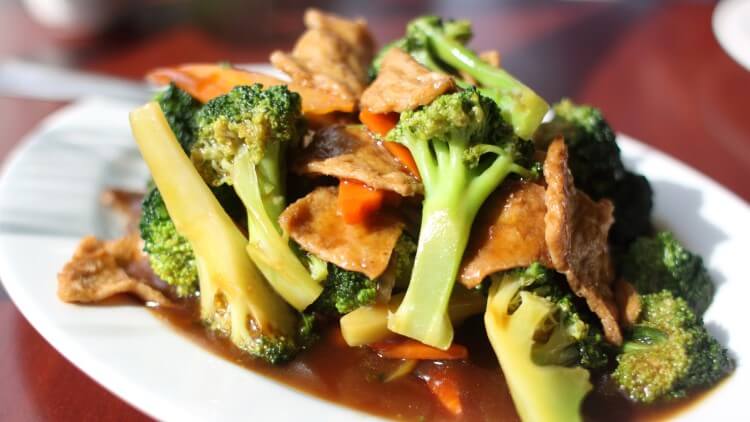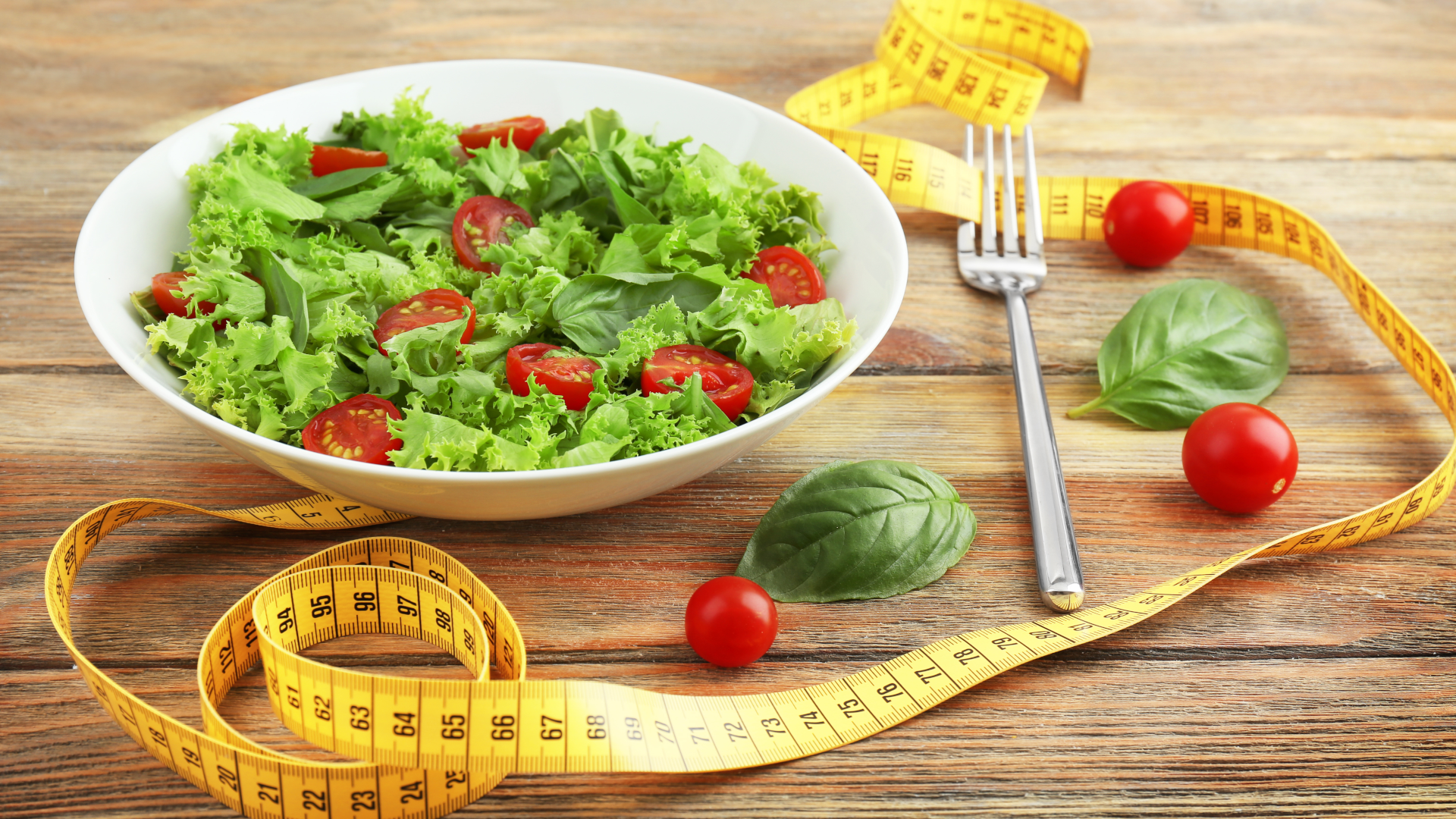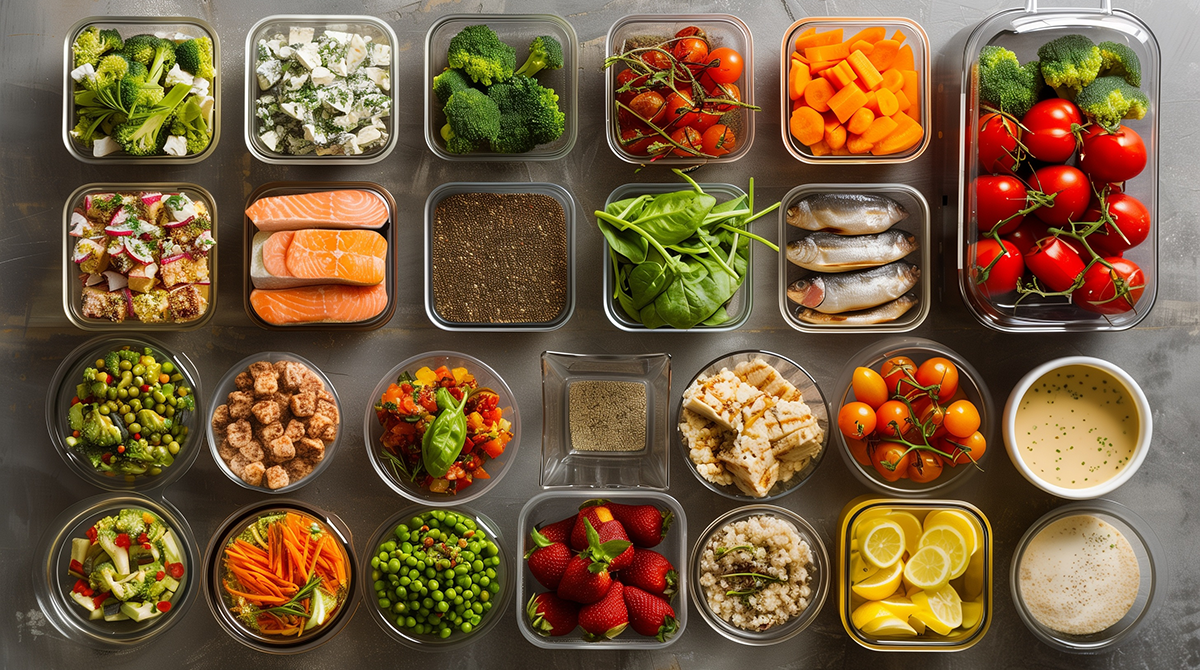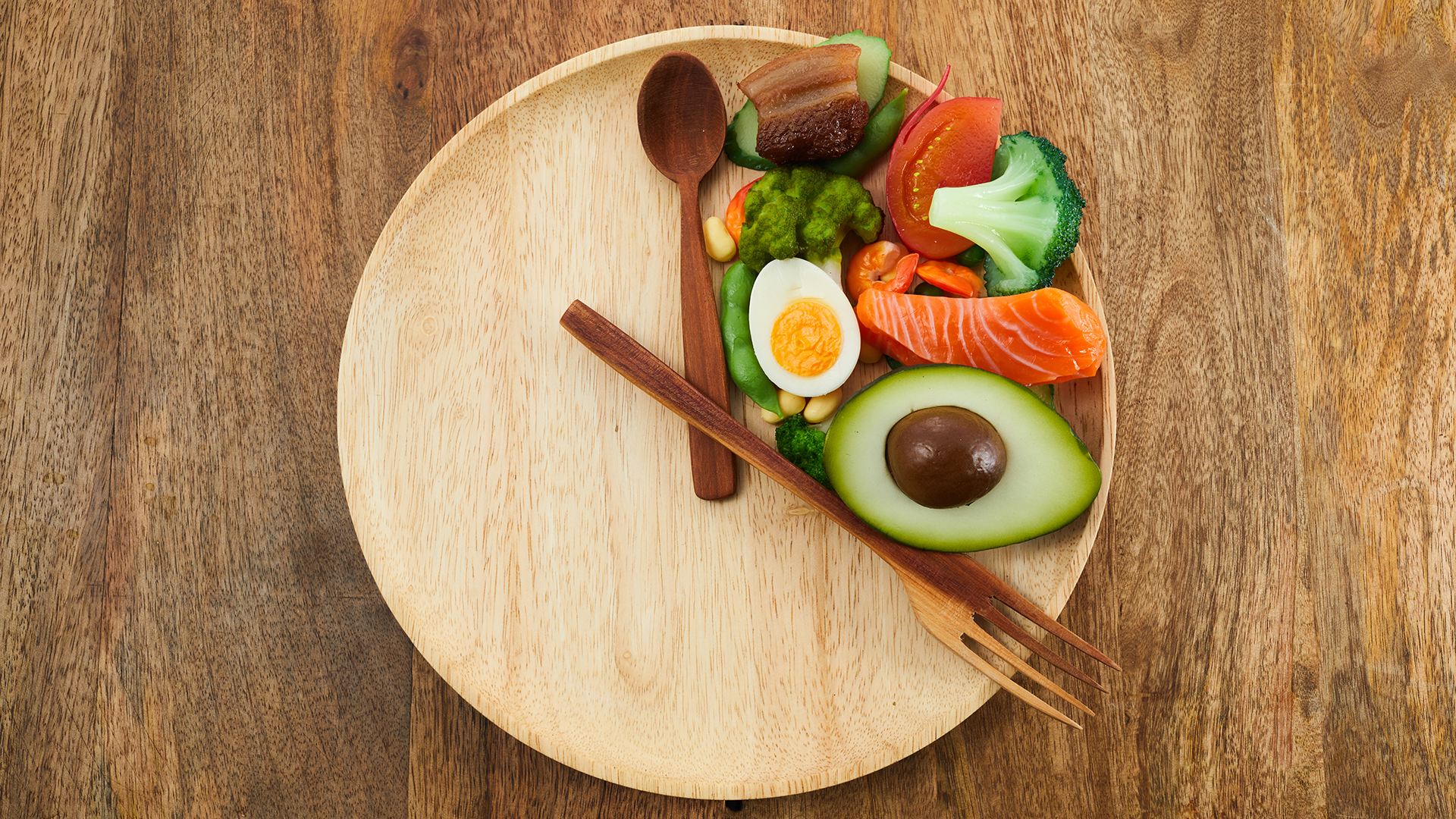Are you thinking of trying out Dr Nowzaradan’s 1200 calorie diet? Perhaps you’ve seen it on TV or heard about its use with weight loss patients but aren’t sure if it’s safe. After all, 1200 calories doesn’t really sound like a lot to survive on!
If you’re keen to learn more and find out whether its truly effective, then this article is for you. In it, we explore the Dr Nowzaradan diet in detail including why he recommends it, the foods that are allowed and restricted, along with a 7-day meal plan.
- What You Should Know About The 1200 Calorie Diet Plan
- Who Is Dr Nowzaradan and Why Does He Recommend A 1200 Calorie Diet Plan?
- 1200 Calorie Diet and Bariatric Surgery
- Foods to Eat on A 1200 Calorie Diet
- Foods to Avoid on This Diet
- 1200 Calorie 7-Day Meal Plan
- Aid Your Weight Loss with Natural Supplements
What You Should Know About The 1200 Calorie Diet Plan
The 1200 calorie diet is a restrictive eating plan that limits food and drink consumption. Participants must not consume more than 1200 calories each day in order to create an energy deficit. The average American consumes over 3600 calories daily so this is a sharp decrease for most people.
Because of its extreme nature, it is only recommended for people who are morbidly obese (those who weigh 600+ pounds). The diet is used in preparation for bariatric surgery and not recommended as a long-term lifestyle change for those looking to lose weight.
Who Is Dr Nowzaradan and Why Does He Recommend A 1200 Calorie Diet Plan?
Dr. Nowzaradan is a surgeon who specializes in bariatric procedures. He has over 40 years of experience and gained popularity as the consultant on a TV show called My 600-Lb Life. On the show, he helped people struggling with morbid obesity to prepare for weight loss surgery and to improve their health. These patients were given super-strict diet plans, exercise programs, and underwent surgical procedures to shift their life-threatening excess weight.
The Dr. Now Diet
A key component of Dr. Nowzaradan's approach is the Dr. Now diet, a structured plan specifically designed for those preparing for bariatric surgery. It is a 1,200-calorie diet plan intended for short-term use. This highly restrictive diet helps patients lose weight quickly to reduce surgical risks and improve overall health. The diet focuses on low-calorie, nutrient-dense foods, emphasizing lean proteins and vegetables while cutting out sugars and fatty foods.
Through this rigorous regimen, Dr. Nowzaradan's aims to instill discipline and prepare patients both physically and psychologically for the life-changing journey ahead.
Insights from Experts on the Dr. Now Diet
Concerns on Restriction and Sustainability
Dr. Franchell Hamilton, a bariatric surgeon, voices significant concerns about the long-term viability of the Dr. Now Diet. Her main objection stems from its restrictive nature, which she believes is neither sustainable nor natural for those struggling with obesity. The diet's allure, often fueled by its portrayal in media, may inadvertently lure individuals into unfavorable long-term dietary habits.
Preoperative Benefits and Cautions
Dr. Christopher Esposito, an expert in surgical procedures, acknowledges certain merits of the diet in preoperative settings. Specifically, he notes that drastically reducing caloric intake—under 1,200 calories a day—can lead to a notable decrease in liver size, sometimes by 15% to 30% within just two weeks. This reduction can facilitate safer and more manageable bariatric surgeries, as a smaller liver grants better surgical access and reduces the risk of injury.
However, despite these short-term benefits, Dr. Esposito advises against extending this diet beyond a few weeks. He warns that maintaining such low caloric intake requires meticulous nutrient monitoring to avoid deficiencies, making it unsuitable for long-term adherence.
In conclusion, while experts recognize specific scenarios where the Dr. Now Diet provides benefits, particularly before surgery, they caution against its long-term application due to potential nutritional challenges and sustainability issues.
Understanding the Pros and Cons of the Dr. Now Diet
When evaluating the Dr. Now Diet, it's crucial to consider both its advantages and potential drawbacks. Here's a comprehensive look at what you might expect:
Pros
- Rapid Weight Loss: Many individuals report quick weight loss, which can be motivating and encouraging.
- Improved Surgical Outcomes: For those preparing for bariatric surgery, weight reduction prior to the procedure may enhance the surgery's success and recovery.
- Nutrient-Rich Foods: The diet emphasizes consuming a variety of nutritious foods that provide essential vitamins and minerals.
Cons
- Nutrient Deficiencies: Due to its restrictive nature, the diet may lack certain nutrients necessary for long-term health.
- Long-Term Risks: Prolonged adherence to the diet can be potentially hazardous, leading to health issues.
- Rebound Weight Gain: There is a risk of regaining weight once the diet is discontinued, as drastic changes may not be sustainable.
Weighing these aspects can help you determine if this diet aligns with your health goals and lifestyle. Always consult with a healthcare professional before starting any new diet plan.
1200 Calorie Diet and Bariatric Surgery
The Dr Nowzaradan diet isn’t just about reducing surgery risks. Although this is a vitally important element, it also has other benefits for his patients. Here are a few of the advantages of his 1200 calorie diet…
- Helps people to lose weight quickly which reduces surgery risks
- Enables them to develop healthier eating habits involving whole foods
- Helps people to get used to smaller portions which they’ll need to stick with following surgery
- Forces patients to demonstrate their commitment to a healthy lifestyle
Bariatric surgery is a serious weight loss procedure. The diet helps patients to prepare for it and the life they’ll have afterwards too. The surgery reduces the volume of the stomach so people can’t eat as much.
This is why it’s important to develop healthy eating habits and get used to smaller portion sizes. Addressing these issues in advance helps patients to adjust to their new post-surgery body much more quickly.
Some people also believe that it’s a way of testing patients to see if they’re really committed to improving their health. It’s easy to think that surgery is a quick fix that doesn’t involve any willpower. But the truth is that all those cravings, emotions, and triggers will still be there after the surgery.
So, it’s vital to be proactive about resolving them head-on. People who stick to the 1200 calorie diet demonstrate their ability to stick with the eating plan. This makes them a better candidate as the surgery is more likely to result in successful weight loss for the long-term.
Foods to Eat on A 1200 Calorie Diet
The Dr Nowzaradan diet encourages people to consume whole foods like vegetables and lean proteins, aiming for a balanced diet of 1200 calories a day. Eating a diet high in vegetables has been shown to increase life expectancy and reduce the risk of chronic diseases.
Veggies are filling and nutritious yet don’t contain many calories which makes them ideal for those wanting to lose weight in a healthy way. Protein is also rich in amino acids which support lean muscle mass and tissue recovery after surgery. However, Dr Nowzaradan recommends that patients cut carbohydrates from their diet to reduce portion sizes.
A 1200 calorie high protein low carb diet will mainly consist of eggs, meat, and low-carb vegetables. Here are some foods that you can eat on this type of diet…
- Eggs – including the yolk or just egg whites.
- Plant protein – tofu, tempeh, etc.
- Fish and seafood – shrimp, salmon, sardines, mackerel, etc.
- Meat and poultry – turkey, chicken, lean beef, etc.
- Nutrient-rich veggies – spinach, broccoli, kale, peppers, tomatoes, etc.
- Low-Sugar Fruit – apples, berries, etc.
- Dairy – cheese, yogurt, kefir, milk, etc.
- Low-calorie drinks – water, green tea, coffee, etc.

Foods to Avoid on This Diet
Following a 1200 calorie diet plan means being super-strict with your food choices. Limiting yourself to this many calories will be tough so it’s important to be smart about what you eat. Energy-dense foods and sugar should be avoided to help keep the calorie intake low. Here is a list of foods that shouldn’t be eaten when following this diet…
- Sugar and artificial sweeteners
- Desserts, candy, chocolate, or anything sweet
- Sugar-rich fruits – bananas, melon, cherries, mangoes, pears, grapes, anything dried or candied
- Sugar-laden spreads – syrup, honey, molasses, jellies, jams
- Processed snacks like crackers and chips
- Starchy veg – carrots, butternut squash, beans, peas
- Nuts or nut butters
- Carbohydrates – rice, pasta, cereal, potatoes, popcorn
- Calorie-rich drinks – soda, juice, energy beverages, sports beverages, alcohol
- Meal supplements or meal replacement shakes
Although most carbohydrates are discouraged, a small single ounce portion of whole grain bread is permitted if it’s eaten in the morning.
1200 Calorie 7-Day Meal Plan
Following a 1200 calorie diet is challenging for most people. It can leave you feeling hungry, deprived, and cravings all those satisfying foods that you’re not allowed! The key to success is having some meal ideas planned in advance so that you always know exactly what you’re eating. Here is a sample 1200 calorie diet menu for a week...
How Much Does the Dr. Now Diet Cost?
When considering the Dr. Now Diet, several factors can influence the overall cost. Primarily, you'll need to account for your grocery expenses, as the diet emphasizes whole, nutrient-rich foods. This might alter your usual grocery bill depending on existing habits and preferred groceries.
If you're pursuing this diet with bariatric surgery in mind, additional costs could include medical bills such as consultations or copays. These will vary based on individual health insurance plans and the healthcare provider you choose.
For those seeking direct advice and guidance from Dr. Nowzaradan, purchasing his book could be beneficial. It provides a comprehensive guide to the diet's principles and details. Typically, the book costs around $25 for a digital copy and approximately $36 for a paperback version, although prices may vary depending on the retailer.
In essence, the Dr. Now Diet's costs are a combination of grocery shopping, potential medical fees, and any educational materials you decide to invest in.
Monday
Breakfast – Poached Egg on Toast
1 egg, 1 slice of wholegrain toast
Lunch – Vegetable Soup
Dinner – Grilled Chicken Salad
1 grilled chicken breast, 2 cups of spinach
Tuesday
Breakfast – Berry Breakfast Smoothie
1 cup of frozen berries, 1 cup of almond milk, 1 handful of leafy greens
Lunch – Vegetable Wrap
1 sliced tomato, 1/2 avocado, handful of salad leaves, 1 large lettuce leaf to wrap everything up in
Dinner – Baked Salmon with Broccoli
5 ounces of baked salmon, 2 cups of roasted broccoli
Wednesday
Breakfast – Omelette Muffins
Lunch – Tuna Salad
1 can of tuna, 1 stick of celery (chopped), 2 cups of mixed greens, 1/2 apple (sliced)
Dinner – Steak with Cauliflower
1 beefsteak, 2 cups of steamed cauliflower
Thursday
Breakfast – Berry Yogurt Bowl
1 cup of plain yogurt, 1 cup of berries
Lunch – Tomato Soup
1 tin of tomato soup, 2 boiled eggs
Dinner – Salmon and Roasted Cabbage
4 ounces of cod, 1 cup of roasted cabbage
Friday
Breakfast – Boiled Egg with Toast
1 egg, 1 slice of wholegrain toast
Lunch – Chicken & Kale Salad
4 ounces of grilled chicken, 2 cups of kale, 1 sliced tomato, balsamic vinaigrette
Dinner – Mexican Fajita Bowl
4 ounces of grilled shrimp, 2 cups of sautéed peppers and onions, 1 ounce of grated cheese, 1 tablespoon of full-fat sour cream
Saturday
Breakfast – Green Breakfast Smoothie
1 apple, 1 cup of almond milk, 1 handful of leafy greens
Lunch – Light Chicken Soup
Dinner – Grilled Turkey Salad
1 grilled turkey breast torn into strips, 2 cups of kale, squeeze of lemon juice
Sunday
Breakfast – Spinach Omelette
2 eggs, 1 cup of spinach, 1 ounce of grated cheddar cheese
Lunch – Tuna Wrap
1 tin of tuna, 1/2 avocado, 1 sliced tomato, handful of salad leaves, 1 large lettuce leaf to wrap everything up in
Dinner – Eggplant Melts
Aid Your Weight Loss with Natural Supplements
When following a low-calorie diet, it can be helpful to take supplements too. They can suppress your appetite and help you deal with hunger pangs. They can also give your metabolism a boost so that it doesn’t slow down due to decreased food intake. Here are a few supplements that can be helpful…
- Caffeine – boosts your metabolism so that you burn more calories at rest. Drinking coffee can also be filling and satisfying so that the 1200 calorie diet is easier to stick with.
- L-carnitine – found naturally in meat and vegetables, it boosts fat loss and increases energy to off-set any tiredness caused by the smaller meal sizes.
- PhenQ – contains α-Lacys Reset®, along with caffeine, L-carnitine, capsicum, vitamin B3 and a host of other nutrients to decrease appetite, increase fat-burning, improve energy levels, and enhance mood.
Experiences of People on the Dr. Now Diet
When diving into user testimonials about the Dr. Now Diet, it's clear that many find value in the insights provided by Dr. Nowzaradan. Reviews often highlight the guidance he offers for those grappling with obesity or considering weight loss surgery. Here's a closer look at what individuals have experienced:
-
Insightful Guidance: Many followers appreciate the advice on nutritional choices and eating habits. One reviewer emphasized the book's rich insight, noting that it’s not just about shedding pounds but understanding the underlying causes of obesity.
-
Thorough Coverage: Others praise the comprehensive nature of the book. Readers often trust Dr. Nowzaradan due to his extensive experience helping patients achieve essential weight loss. They find the book valuable for covering everything from background on obesity to the latest in surgical options.
-
Expectations vs. Reality: However, not every reader is satisfied. Some express disappointment over the focus of the content. A few felt the book leaned more towards discussing obesity itself rather than providing a detailed explanation of the diet plan.
In summary, while many commend Dr. Nowzaradan’s expertise and the thoroughness of the information, some are left wanting more specific dietary details.
Frequently Asked Questions (FAQs)
What is the significance of a diet plan 1200 calories in weight loss?
A diet plan 1200 calories is a structured eating plan that restricts daily calorie intake to 1200 calories. This low-calorie diet is often recommended for weight loss as it creates a calorie deficit leading to fat loss.
How does Dr. Nowzaradan assist in weight loss?
Dr. Nowzaradan, a renowned bariatric surgeon, is known for his expertise in weight loss management. He designs personalized diet plans and provides supervision to help individuals achieve their weight loss goals.
What does a Dr. Nowzaradan diet plan entail?
A Dr. Nowzaradan diet plan typically consists of lean protein, nutrient-dense foods, and low-carb options. It focuses on three meals a day to regulate calorie intake and promote weight loss.
Why is the 1200 calorie diet popular for weight loss?
The 1200 calorie diet is popular for weight loss due to its effectiveness in creating a calorie deficit. By consuming 1200 calories per day, individuals can achieve weight loss goals while still meeting their nutritional needs.
What role does bariatric surgery play in weight loss?
Bariatric surgery is a weight loss procedure recommended for individuals with obesity. It helps in reducing the size of the stomach and altering the digestive process, leading to significant weight loss results.
How does Dr. Nowzaradan's diet plan contribute to weight loss surgery?
Dr. Nowzaradan's diet plan is designed to prepare patients for weight loss surgery by helping them achieve a specific caloric intake and body weight target. Following this plan can improve surgical outcomes.
The 1200-calorie diet plan book is set to be published on May 10th, 2024. It is an independently published work, containing a total of 90 pages. The book is written in English and can be identified by its ISBN, which is 9798325141867.
Discover the 1200-Calorie Diet Plan Book by Alice Johnson
Explore your path to wellness with this transformative guide designed around Dr. Nowzaradan's well-renowned 1200-calorie diet plan. This book invites you to embark on a journey that promises effective weight loss through sustainable and manageable methods.
What to Expect
Revolutionary Weight Loss Approach
Tired of empty promises and miracle diets that fail to deliver? This book offers an approach that works—crafted with precision based on Dr. Nowzaradan's famous techniques. This plan isn’t just about losing weight; it's about embracing a healthier, happier lifestyle.
Proven Success
Join the community of over 25,000 satisfied individuals who have successfully followed this method, achieving life-altering results. With a remarkable success rate of 96%, this plan is more than a diet—it's a commitment to your well-being.
Book Details
- ISBN: 9798325141867
- Publisher: Independently Published
- Publication Date: May 10th, 2024
- Language: English
- Pages: 90
By adopting this approach, you are not just losing weight but reclaiming your health and happiness. Whether you've struggled with fleeting diets or you're simply ready for a change, this book is your starting point to a sustainable transformation.
Summary: Dr Nowzaradan’s 1200 Calorie Diet
The 1200 calorie diet plan was made famous by Dr Nowzaradan on the My 600-lb Life TV show. It’s aimed at morbidly obese people who want to lose weight. The plan involves restricting calories to kick-start rapid weight loss in preparation for bariatric surgery, closely aligning with Dr. Nowzaradan's diet plan for weight loss surgery candidates.
This requires cutting sugar and carbohydrate from the diet so that meals mainly consist of lean protein and nutritious veggies. Following a weekly meal plan and taking high-quality supplements can help people stick to the rigid program more successfully.




